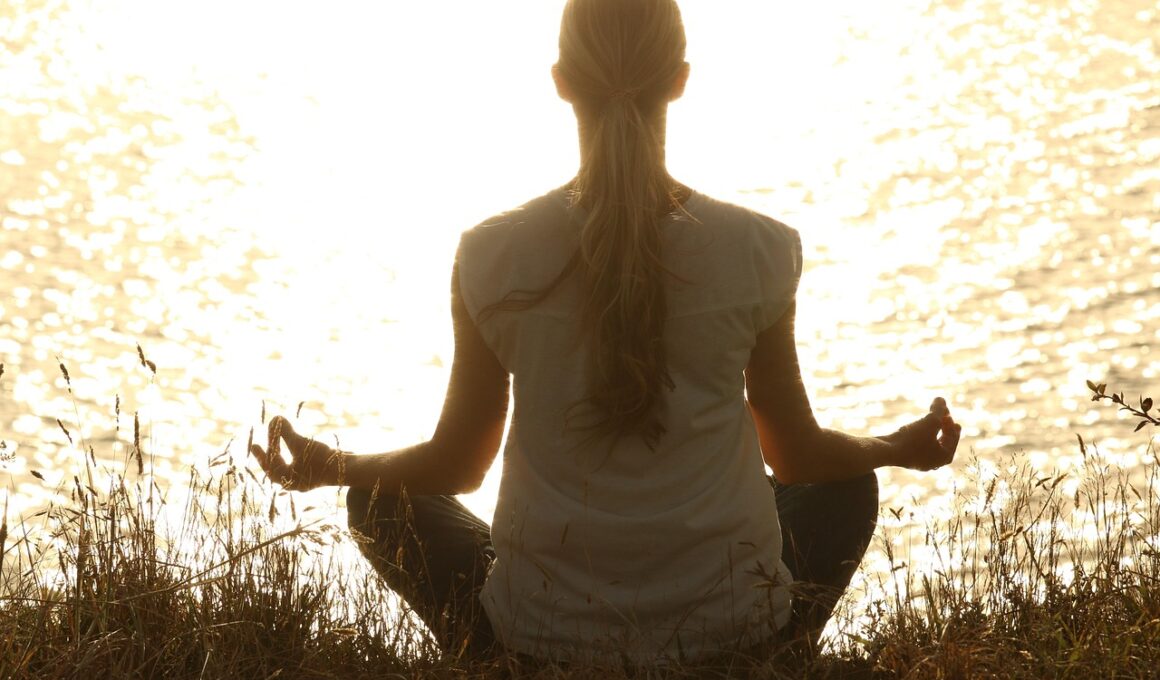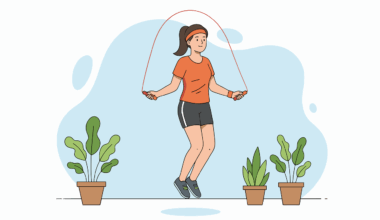Mindfulness and Meditation for Adult Stress Relief
Stress is a common issue that affects many adults in various ways, impacting both physical and mental health. One of the most effective approaches to managing this stress is through mindfulness and meditation techniques. These practices create a space for individuals to connect with their thoughts and emotions, fostering a sense of balance and tranquility. Mindfulness, in particular, encourages individuals to remain present in the moment, which can reduce feelings of anxiety and overwhelming pressure. By focusing on the here and now, people can learn to respond better to stressors instead of reacting impulsively. Meditation also compliments mindfulness by offering structured time for reflection and self-awareness. This can enhance emotional resilience, allowing individuals to cope better with daily challenges. Furthermore, research indicates that regular practice of these techniques promotes relaxation and improved mood, making it easier for adults to face their stressors calmly. Therefore, integrating mindfulness and meditation into daily routines could be a transformative journey toward better stress management, enriching overall quality of life and enhancing emotional well-being.
To effectively incorporate mindfulness and meditation into daily routines, it’s essential to set aside specific times dedicated solely to these practices. Start by ensuring a comfortable and quiet space free from distractions, as this will allow for deeper focus and relaxation. Consider starting with short sessions of just five to ten minutes, gradually increasing the duration as comfort and experience grow. Many individuals find guided sessions helpful, so apps or online videos can be excellent resources for beginners. A typical session may involve focusing on the breath, observing thoughts without judgment, and gently redirecting attention as distractions arise. Over time, you might also explore various styles of meditation, such as loving-kindness meditation or body scan techniques. Experimenting with different methods can reveal what resonates most with your personal needs. Journaling after meditation can also enhance self-reflection, aiding in recognizing patterns and identifying triggers of stress. By developing a consistent practice, you may find that your ability to manage stress becomes increasingly effortless, fostering a longer-term sense of peace and balance in life.
The Science Behind Mindfulness
There is a growing body of scientific evidence supporting the mental and physical health benefits of mindfulness and meditation. Studies have shown that these practices can lower cortisol levels, a hormone associated with stress, thereby reducing overall feelings of anxiety and depression. Furthermore, mindfulness enhances brain functions like attention and concentration. Through neuroplasticity, regular mindfulness practice can lead to structural changes in the brain, increasing grey matter in regions linked to emotional regulation and cognitive functions. This suggests the potential for mindfulness and meditation not just to reduce stress, but to develop important skills for life. Additionally, research highlights that mindful individuals are more adept at coping with difficult emotions, fostering improved relationships and communication obstacles. They often report heightened levels of satisfaction in life due to this increased emotional intelligence. Participating in mindfulness practices can also cultivate a positive mindset, making stressors feel less overwhelming. In essence, mindfulness and meditation provide scientifically proven tools for enhancing emotional resilience and personal well-being, making them invaluable for stress management in adults.
In addition to individual benefits, incorporating mindfulness and meditation into workplace environments can create healthier dynamics among teams. Organizations that encourage employees to engage in mindfulness practices often see reduced stress and improved productivity. Simple initiatives, such as meditation breaks or mindfulness workshops, can significantly enhance workplace culture. By fostering a supportive and understanding atmosphere, employers can empower employees to approach their jobs with a fresh perspective, thus enhancing creativity and overall job satisfaction. Furthermore, professionals who embrace these techniques report lower instances of burnout and decreased absenteeism. Research shows that individuals in environments that prioritize mindfulness tend to demonstrate increased collaboration and communication, leading to more cohesive teamwork. Implementing these practices can serve as a catalyst for positive change, promoting mental well-being and increased efficiency. Leaders who model mindfulness can also influence their teams, encouraging a more compassionate approach to management and operational challenges. Overall, the integration of mindfulness into professional settings is a win-win scenario, benefiting both individuals and organizations alike. It’s a simple yet powerful step toward fostering a thriving work life.
Creating a Mindfulness Routine
Establishing a consistent mindfulness routine requires intention and flexibility. Start by identifying the best time of day that fits your schedule — whether it’s early morning, during lunch breaks, or before bed. Morning sessions can set a positive tone for the day, while evening sessions can help unwind and reflect. Once you’ve chosen a time, focus on creating a conducive environment for practice. This requires minimizing distractions and ensuring comfort. You should also consider what method you will utilize, whether it’s mindfulness meditation, yoga, or deep breathing exercises. Whichever technique you choose, try remaining committed to practicing at the same time each day to instill a sense of discipline. Apps can help set reminders and track progress. Involving friends or family members can also enhance accountability and motivation, making the experience more enjoyable. Sharing your insights and experiences with others can foster a sense of community and encourage continuous practice. Remembering to be patient and forgiving with yourself, especially on days when mind wandering occurs, promotes a deeper connection with your practice.
Moreover, complementing mindfulness with physical activities can further amplify stress relief benefits. Engaging in activities like yoga or tai chi integrates movement with mindful awareness, cultivating a holistic approach to well-being. These practices enhance bodily awareness, contributing to better posture and reduced physical tension, which can accumulate under stress. Finding a routine that blends physical activity and mindfulness can enhance overall effectiveness in managing stress. Starting with simple stretches or postures can connect the body with breath, heightening relaxation and mental clarity. Many individuals find that these practices allow them to tune into bodily sensations, fostering deeper self-awareness about areas that may require attention. Ultimately, incorporating gentle physical activities alongside mindfulness cultivates a balanced perspective toward stress management. Tools such as fitness trackers can also motivate physical activity by setting goals and celebrating small achievements along the way. Consistent effort in this combined approach contributes to greater resilience against emotional and physical stressors. As a result, developing an integrated routine can provide long-term benefits for adults coping with daily life challenges.
Mindfulness Resources and Tools
As the interest in mindfulness and meditation continues growing, numerous resources are available to support practice and integration into daily life. One of the primary tools is mobile applications, which can help beginners and experienced practitioners alike. Popular apps like Headspace or Calm offer guided meditations, relaxation music, and structured programs to help users progress. Online platforms such as YouTube also provide a plethora of free resources. Moreover, websites dedicated to mindfulness offer tips and community forums for sharing experiences. Books on mindfulness and stress management can serve as practical guides, offering both theoretical background and practical exercises for readers. Participating in workshops or classes led by trained instructors can enhance understanding and create reciprocal learning experiences. Additionally, mindfulness podcasts can be a fantastic way to learn while commuting or performing daily tasks, blending education with everyday life seamlessly. As you explore various tools, stay attentive to what resonates with you and adapt your practice accordingly. Remember, mindfulness is a personal journey, and choosing resources that align with your preferences and lifestyle fosters a deeper connection with these transformative practices.
Ultimately, the journey toward effective stress management through mindfulness and meditation is unique for each individual. Embracing mindfulness as a daily practice invites positive change, fostering emotional resilience and overall mental well-being. The challenge lies in integrating these practices into a busy adult life. However, the rewards are profound, enabling a calmer and more centered approach to stressors faced each day. As you cultivate awareness of your surroundings, thoughts, and feelings, stress becomes less overpowering and more manageable. This transformation can lead to improved relationships, enhanced focus, and a greater appreciation for life’s moments. Remember, there will be days when mindfulness feels challenging; growth often occurs through obstacles faced. With persistence and commitment to practice, individuals develop stronger mental muscles and coping capacity. Begin small, envision your goals, and allow mindfulness to guide you through stress management with grace. The potential for deeper personal transformation lies within these practices. As one embarks on this journey, it’s essential to remain patient and embrace progress rather than perfection. Ultimately, mindfulness and meditation offer a powerful pathway toward thriving amidst the complexities of adult life.


